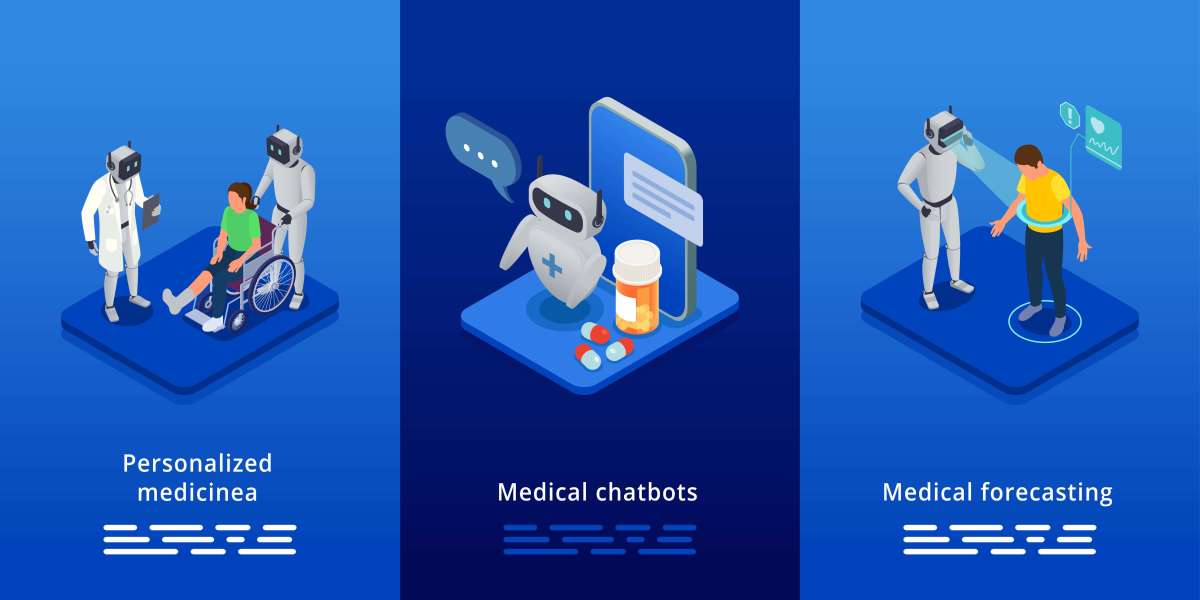Introduction
In recent years, the healthcare industry has witnessed a significant transformation fueled by technological advancements. Among the notable innovations is the integration of chatbots, which have emerged as powerful tools to enhance patient engagement, streamline communication, and provide efficient healthcare services. In this blog post, we will explore the role of chatbots in healthcare and their impact on patient care.
The Evolution of Chatbots in Healthcare
Chatbots, powered by artificial intelligence (AI), have evolved from simple rule-based systems to sophisticated conversational agents capable of understanding natural language and context. In healthcare, these bots are designed to interact with patients, answer queries, schedule appointments, and even offer personalized health advice.
24/7 Accessibility
One of the significant advantages of healthcare chatbots is their round-the-clock availability. Patients can access information and support at any time, reducing the burden on healthcare providers and minimizing delays in seeking assistance.
Appointment Scheduling and Reminders
Chatbots streamline the appointment scheduling process, allowing patients to book and manage appointments seamlessly. Automated reminders help reduce no-show rates, ensuring that patients receive the care they need in a timely manner.
Health Monitoring and Management
Some advanced healthcare chatbots are equipped with the capability to monitor patients' health conditions. By collecting and analyzing data, these bots can provide insights into a patient's well-being and offer suggestions for managing chronic conditions.
Health Information and Education
Chatbots serve as valuable resources for disseminating health information and educating patients about various medical conditions, medications, and treatment options. Access to accurate and reliable information empowers patients to make informed decisions about their health.
Reducing Administrative Burden
Healthcare providers benefit from the automation of administrative tasks through chatbots. This allows professionals to focus on delivering high-quality care rather than being bogged down by paperwork and routine inquiries.
Remote Consultations
Chatbots facilitate remote consultations, enabling patients to seek advice from healthcare professionals without the need for a physical visit. This is particularly beneficial in situations where immediate medical attention is not required but consultation is necessary.
Emotional Support
Recognizing the importance of mental health, some chatbots are designed to provide emotional support and resources for managing stress, anxiety, and other mental health concerns. These bots offer a confidential and accessible avenue for individuals to seek help.
Challenges and Future Prospects
While the integration of chatbots in healthcare has been met with enthusiasm, there are challenges to address, such as ensuring data security, maintaining patient privacy, and addressing ethical concerns. As technology continues to advance, the future holds exciting prospects for healthcare chatbots.
Enhanced Personalization
Future iterations of healthcare chatbots are likely to offer even more personalized experiences, tailoring interactions to individual patient needs and preferences.
Integration with Wearable Devices
Chatbots can be integrated with wearable devices to gather real-time health data, providing a more comprehensive picture of a patient's health status. This information can be used to offer personalized recommendations and interventions.
Advanced Diagnostic Capabilities
As AI technologies progress, chatbots may evolve to provide more advanced diagnostic support, helping in the early detection of diseases and conditions.
Collaboration with Healthcare Professionals
Collaboration between chatbots and healthcare professionals will become more seamless, with bots assisting in data analysis and information gathering to support clinical decision-making.
Conclusion
The integration of chatbots in healthcare represents a paradigm shift in how patients and healthcare providers interact. By providing accessible, personalized, and efficient services, chatbots contribute to improved patient engagement and overall healthcare outcomes. As technology continues to advance, the synergy between AI-powered chatbots and traditional healthcare practices holds great promise for the future of the industry.









